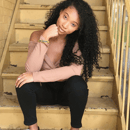Just when we thought the HBCU vs PWI debate was finally settling down, a new trend has arrived to stir the pot. Black students at PWIs (Predominately White Institutions) have started referring to their school’s Black student bodies as HBCUs. Yes, let’s run that back. Black students at institutions that at one time didn’t even allow Black students to attend are calling their schools historically Black colleges and institutions. In light of homecoming season, the energy on HBCU campuses is at an all-time high with visits from alumni, students from other schools, and even local residents. HBCUs foster an atmosphere filled with family, love, and unity but if HBCUs aren’t good enough for you to attend or support — DO NOT come to our homecomings; and more importantly, DO NOT refer to your PWI as an HBCU!
The trend first sparked on the west coast at UCLA, where Black Bruins, as they refer to themselves, started using the hashtag #HBCULA. The students claim that they use the hashtag lightly as a joke, but also to celebrate their black student body (all 3% of it) and the space they have created for themselves at their white institution.
Others came to the conversation to add that Black students at UCLA have accomplished many historical things at their white institution. According to the UCLA alumni newsletter, many Black athletes from the 30s and 40s helped break barriers by integrating collegiate and eventually, professional sports. In the 50s, Sherrill Luke was elected UCLA’s first, and America’s second, black student body president. Their university is also home to one of the first and few centers for African American Studies. With all that being said, UCLA is still not an HBCU. Sorry.
HBCUs are not equivalent to “black people coming together to do great things”. Although that is what happens at all of our illustrious institutions. HBCUs are sacred places for Black people to exist, to educate, and be educated. HBCUs were created for our own people and by our own people to advance our own people. Many people who have a problem with all Black spaces and the fact that the culture that has been birthed from these spaces are not to be shared — are people who have yet to experience Black history in its purest form.
Last year, I explained it best to a PWI student who was a part of a Divine 9 fraternity. If someone were to wear your colors, copy your strolls, or do community service; it wouldn’t make them a member of your fraternity. “Of course not.” He responded. And I would like to believe there is much more substance and depth to your organization than your colors or strolls, correct? “Yeah, you wouldn’t know the half.” He agreed. Then why is it so hard for Black students at PWIs to understand and respect the importance and distinction of HBCUs? HBCUs are more than swag surfs, parties, and even Homecomings. HBCUs are where the Black middle class was born. HBCUs are the reason we have Oprah Winfrey, Thurgood Marshall, Spike Lee, and Taraji P. Henson, just to name a few (and I mean a FEW).
According to the Nation Center for Education Statistics, if your college or university was not established prior to 1964 with the principal mission of educating Black Americans, you are NOT an HBCU. Until your white institution, let alone the small percent of your Black student body at your white institution graduates 40 percent of all Black members of Congress, 40 percent of all Black engineers, 50 percent of lawyers, and 80 percent of black judges in this country … you are NOT an HBCU.
Facts are facts. I don’t present these things to say one is better than the other but to recognize their differences and note how it is disrespectful to refer to a majority white institution as a historically black college or university. The fight to create a space for yourself at a school is not the same as continuing the legacy of a school our ancestors preserved, that was built solely for Black people to win. We appreciate all the work that is done by Black students at PWIs, but please keep in mind where you are at … a PWI.


